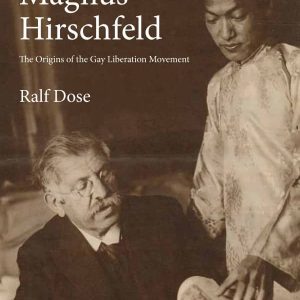Magnus Hirschfeld and the Struggle for Transformation, Not Tolerance
By Andrew Grossman
14 July 2014
Sexual rights in America remain both provisional and cynical; we know everyone should have them, but we are beholden to cowardly, outmoded, theocratic institutions that are fearful of egalitarianism.
For those whose knowledge of the gay rights movement begins with Stonewall—or worse, with the fight for marriage equality—Ralf Dose’s short but well-researched monograph Magnus Hirschfeld: The Origins of the Gay Liberation Movement (originally published in German as Magnus Hirschfeld: German, Jew, Citizen of the World, 2005) comes at a propitious moment, when the State grudgingly hallows the LGBTQ community with the dubious privilege of matrimony.
I use the term “community” as a lame convenience; since the time of Hirschfeld himself, the LGBTQ movement, always fractious, has often rejected the false coherences compelled by community or institutions. Marriage proposes, at once, the ultimate coherence, the ultimate temptation, and the ultimate corruption. As much as we desire the legal fiction of “rights”, we cannot romanticize an exclusionary institution historically predicated on the barter of women for patrilineal dowries, parcels of land, or collections of goats. That marriage is conferred by the arbitrary powers of magistrates, sheriffs, adjutant mayors, sea captains, and Internet clerics should reveal its historical tenuousness, its officious debasement of the myriad possibilities of human love.
This is not the 18th century: we no longer believe rights (that is, privileges) descend from God or arise from Nature. The pragmatist Jeremy Bentham rightly called the notion of natural rights “utter nonsense”—we should instead speak of utilitarian “advantages”. Obviously, non-revolutionary minorities are never in a position to grant themselves advantages; at best, minority classes receive the belated munificence of their own persecutors. The oxymoron of “natural rights” was a necessary pretense of French philosophers and American legalists who had to dilute and demote religion without negating its authoritarian convenience. When the guillotine blades fell, God suddenly believed in republicanism, not divine right, and a plurality of rights were distributed unnaturally by egotists smug with fleeting power…

Comments are closed.